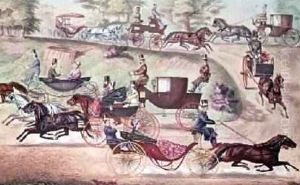Thomas North Paintings
Thomas North is not primarily known as an artist in the traditional sense, but rather as an English translator whose work had a significant impact on English literature and, indirectly, on the visual arts through the inspiration his translations provided to other creatives, including William Shakespeare. North was born in 1535 in London, the second son of the Edward North, 1st Baron North. He was part of the gentry, which allowed him the educational and social opportunities to pursue literary work.
North is best known for his 1579 translation of Plutarch's 'Lives of the Noble Grecians and Romans', a collection of biographies of famous men, which he translated from the French version by Jacques Amyot rather than the original Greek. His translation is celebrated for its robust Elizabethan prose and was a significant source for Shakespeare, who used it as a reference for many of his historical and classical plays, including 'Julius Caesar', 'Antony and Cleopatra', and 'Coriolanus'. The influence of North's work on Shakespeare has, in turn, inspired countless works of art, from paintings and sculptures to operas and films, that visualize the characters and stories from these plays.
In addition to his famous translations, North also translated 'The Dial of Princes' in 1557, which is the English version of Antonio de Guevara's 'Reloj de príncipes' or 'Libro aureo de Marco Aurelio'. His translation of this text provided moral instruction and guidance based on the supposed meditations of Marcus Aurelius and was also well-received in the Elizabethan period.
Despite the lack of direct contributions to visual arts, Thomas North's translations have had a lasting legacy, affecting not just literature but also the way stories from classical antiquity have been interpreted and depicted in Western art. He died in 1601, but his translations continue to be read and appreciated for their literary quality and historical significance.
